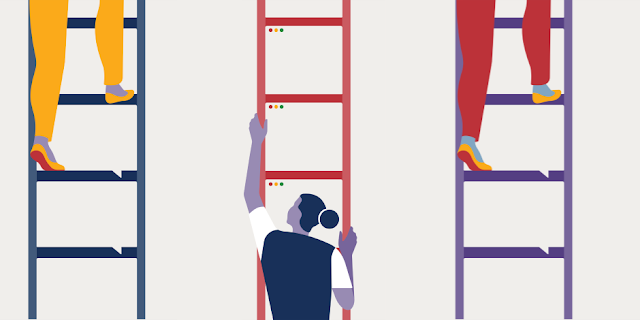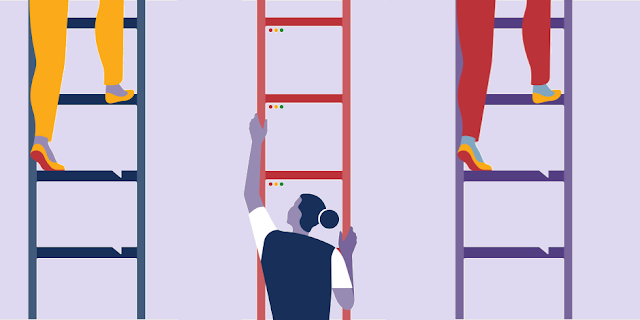Within
a previous article, we introduced ACS Tomitanii Constanța –
Romanian professional rugby club. Through the contributions of our interviewees
– Adrian Ion,
Ngoni Chibuwe, and Ionuț Coman – along with additional
academic and practical research, we aim to highlight the versatile nature of
rugby players’ diets and the factors by which these are influenced, revealing some
useful and even unexpected findings. So what have we learnt?
BODY TYPE
Body
types impact individual characteristics and needs. A system through which body
types are categorised is the somatotype, differentiating between three main
elements: 'ectomorphic', 'mesomorphic', and 'endomorphic'. Falling in between one of these three somatotypes is common, considering the world's broad and highly diverse population.
Moving on, an
example of how nutritional needs vary with body type denotes from our players’ answers.
Ionuț – who falls close to the ectomorph side – observed that
reducing meat consumption enhances his energy levels, especially when running. Ngoni on the other hand – who fits more within the mesomorph side – emphasises how
essential proteins, including meats, are for maintaining energy, strength, and recovery
time.
GENDER
Although
the foundation of a healthy diet is the same for all genders, on average, women
tend to have smaller bodies than men, which results in different caloric needs.
Women need fewer calories than men, but often require additional vitamin and
mineral intake.
Furthermore,
distinct gender-related attitudes towards nutrition are ubiquitous, and are impacted
by psychological and socio-cultural factors. Such differences emerge in the
early stages of life, commonly leading to women having higher knowledge and
concern towards nutrition, usually due to beauty standards and social pressure.
This pattern is just as present in the sports world.
AGE
As we
age, we lose lean body mass (e.g., bones, muscles, blood, skin), while our
activity levels also tend to decrease. These are main factors that cause our
metabolism to slow down. Metabolism refers to the chemical processes in our bodies
causing food to transition into energy and growth. In order to maintain a
healthy metabolic rate, nutrition is among the aspects we should pay attention
to.
Even
as a highly active, professional rugby player, Adrian highlighted the
importance of an adequate diet: “Of course, I have to be careful. Although
there are times when I ‘forget about the diet’, when I’m on holidays, for the
most part, I need to take care, since I am not as young anymore and my body
reacts differently now. I don’t eat bread and fried foods anymore, except for rare
occasions. I also cut off sweets and sugary drinks. You need to be balanced in
order to maintain and exceed your level, and this implies making sacrifices.”
CULTURE & GEOGRAPHICAL AREA
Attitudes
towards nutrition, food consumption, and associated trends vary across the
globe, in each culture and sub-culture. These distinctions are brought by many
factors, among which resources availability, climate, beliefs, technology, infrastructure,
education, time constraints.
Constanța,
the club’s base, is a seaside city. Here, our players revealed an enthusiastic
atmosphere and a passion for food. A two course meal is common in the Romanian cuisine
– usually starting off with a light soup, followed by a main dish, oftentimes meat-based
or rich in proteins, accompanied by a side dish and a healthy salad.
PERSONAL PREFERENCES & VALUES
Whether
to support a cause (e.g., animal protection; reducing environmental footprint),
personal tastes, health reasons – athletes’ diets are, too, shaped around such
matters.
Although
rare within rugby, Ionuț is now vegetarian for almost a year and
is feeling amazing. “Coaches are telling me ‘to eat more and gain weight’, but
I think it depends on each person. I sense a positive difference.” He also follows
a strict, consistent schedule before games. His initiatives are particularly based
on his value of living a healthy life. Ngoni follows a different
approach, preferred as it helps him achieve his best potential. This involves eating
a lot of proteins, unprocessed or lightly processed veggies, and drinking
plenty of water. Before a match, he prioritises carbs, cuts off sugars and
importantly, getting eight hours of sleep.
CONTEXT
As mentioned
before, athletes face different seasons and
circumstances to which they have to adapt (e.g., match seasons, travelling
& tournaments, holidays). This implies adapting their diets to suit their
specific needs at the time.
For
example, during pre-season, training is highly intense, especially strength
training. This is followed by a more relaxed approach throughout the game week,
so that the players do not risk burning out. All these reveal the need for an
adequate, nutritious diet that can sustain players’ efforts and recovery, so as
to maintain their health and potential.
GOALS & EXPECTATIONS
The level
of performance desired to be reached (e.g., amateur, semi-professional,
professional), improvement of certain skills, ideal physique, etc. all influence
players’ diets. Different types of physical activity imply different nutritional
needs. These fall under four categories: aerobic, muscle-strengthening,
bone-strengthening, and stretching. It is crucial, thus, that diets are adapted
to sustain the achievement of such objectives.
Thank
you for your time! Tell us, which factors influence your diet choices most, and
how does your diet help you in achieving your goals?
REFERENCE LIST
Behance (2020) travel guide [online] available from https://www.behance.net/search/?field=5&content=projects&sort=published_date&time=week&search=travel%20guide
Cambridge Dictionary (2020) metabolism [online]
available from https://dictionary.cambridge.org/dictionary/english/metabolism
Green Health Blog (2018) Styles of Body (Somatotype),
Know Yours [online] available from https://www.greenhealthblog.com/styles-of-body-somatotype-know-yours/
Hootsuite (2019) How to Set and Reach Social Media Goals
(+10 Goals to Track) [online] available from https://blog-assets.hootsuite.com/wp-content/uploads/2019/03/social-media-goals.png
Kiefer I., Rathmanner T., and Kunze M. (2005) ‘Eating and
dieting differences in men and women’ The Journal of Men's Health and Gender
2 (2), 194-201. DOI: https://doi.org/10.1016/j.jmhg.2005.04.010
Raman, R. (2017) Why Your Metabolism Slows Down With Age
[online] available from https://www.healthline.com/nutrition/metabolism-and-age#TOC_TITLE_HDR_4
Sheldon, W. H. (1942) The Varieties of Temperament. New
York: Harper & Brothers
Shookt (2017) Packaging Color = Healthy Energy Bar? [online]
available from https://shookt.wordpress.com/2017/03/26/packaging-color-healthy-energy-bar/
Short K. R., Vittone J.
L., Bigelow M. L., Proctor D. N., and Nair K. S. (2004) ‘Age and aerobic
exercise training effects on whole body and muscle protein metabolism’ American
Journal of Physiology-Endocrinology and Metabolism 286 (1), E92-E101. DOI: https://doi.org/10.1152/ajpendo.00366.2003
Skender, S., Ose, J., Chang-Claude, J., Paskow, M.,
Brühmann, B., Siegel, E. M., Steindorf, K., and Ulrich, C. M. (2016) ‘Accelerometry
and physical activity questionnaires – A systematic review’ BMC Public
Health 16 (1), 515. DOI: https://doi.org/10.1186/s12889-016-3172-0
Sunbears Blog (2020) Let’s Talk About Rugby [online]
available from https://sunbears-sports.blogspot.com/2020/08/lets-talk-about-rugby.html
The American Council on Exercise (2012) Do men and women
have different nutritional needs? [online] available from https://www.acefitness.org/education-and-resources/lifestyle/blog/2461/do-men-and-women-have-different-nutritional-needs/?fbclid=IwAR36IsCoaHAN2M41W2oWKF_jihe2ka2KivxK6frtCigOMhBJf3Ars1-cO1g
The Garb Wire (2016) HAND MASTER BY KARAN SINGH
[online] available from https://thegarbwire.com/2016/10/21/hand-master-by-karan-singh/
The New York Times (2018) When She Earns More: As Roles
Shift, Old Ideas on Who Pays the Bills Persist [online] available from https://www.nytimes.com/2018/07/06/your-money/marriage-men-women-finances.html
The New York Times (2019) It’s a Terrible Day in the
Neighborhood, and That’s O.K. [online] available from https://www.nytimes.com/2019/11/28/opinion/mister-rogers-neighborhood.html
Within Networks (2019) Cultural diffusion [online]
available from https://withinnetworks.wordpress.com/2019/04/14/cultural-diffusion/










Knowing your body in and out will help your diet drastically. Knowing what your body responds well to and what it doesn’t will help you get the most out of your diet. Also differentiating between wants and needs
ReplyDeleteThat is indeed true, Dave. It can be tricky to differentiate our cravings from what our body really needs.
DeleteThank you this insight! Stay healthy, stay safe!
Nutrition is so underated . Not only inn terms of sport performance but also when it comes to wellbeing and energy level in everyday life.
ReplyDeleteRight! Nutrition is so important as it’s our main fuel for any activity we perform.
DeleteThank you for reading our article and commenting! Stay safe and healthy!
Super interesting, thanks!
ReplyDeleteThank you for your feedback! We are glad you enjoyed reading the article!
DeleteStay healthy, stay safe!
Very interesting article!! Don’t know if it can be categorized as a diet, but rather more of a lifestyle, but I’m a huge advocate of intermittent fasting. I’ve been following such an eating pattern (18:6 -which involves fasting for 18 hours and a 6 hour eating window) for almost a year now and the results are incredible. We’re used to snaking all the time and eating A LOt of food throughout the entire day, that we forget to give our digestive system a rest. Intermittent fasting has helped me be more wary of what I eat, be more mindful and present with food, as well as achieving all of my health goals.
ReplyDeleteThank you so much for the feedback and for sharing your detailed approach, Miruna!
DeleteWe are happy that you discovered a lifestyle & diet that benefits you most. It is also very interesting to notice how unique we all are in terms of our bodies’ needs and requirements.
Wishing you great health! Stay safe!
This article is very interesting and I have had my fair share of trying to balance my nutrition and energy levels. I metabolise really quickly and it doesn’t matter how much I eat, I will not gain weight. I play amateur football twice a week and I try to eat before every match. I noticed I have maximum energy 4 hours after eating a bowl of pasta, rice or noodles. The only time I take my nutrition serious is when I’m about to play football. On other days, I delay breakfast which always leads to low energy levels throughout the day. Someday I’ll take this serious.
ReplyDeleteThank you for sharing this insight! It is very important that you are so self-aware in regards to this. Everything else will follow naturally.
DeleteAnd it’s good that you noticed how essential breakfast is. It really fuels our day, doesn’t it!
Wishing you all the best within your football initiatives! Keep staying active & healthy!